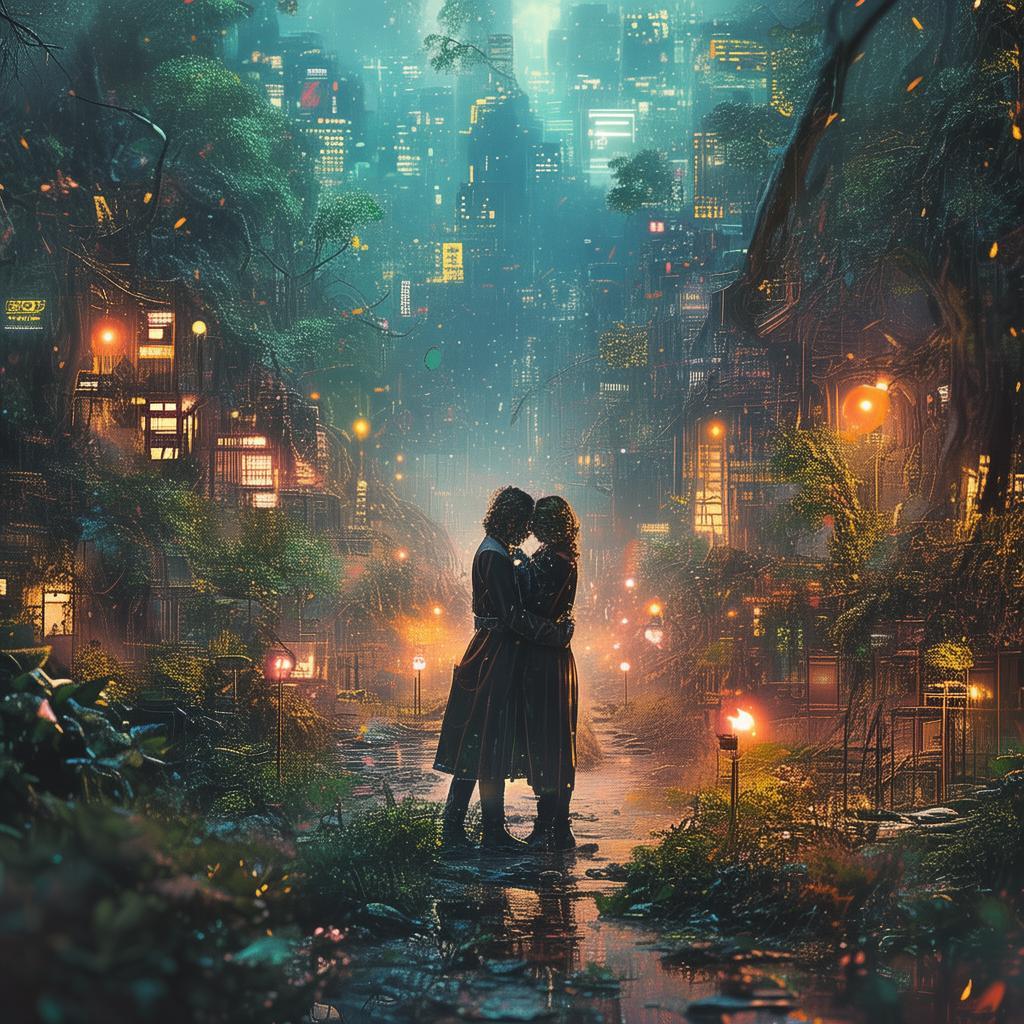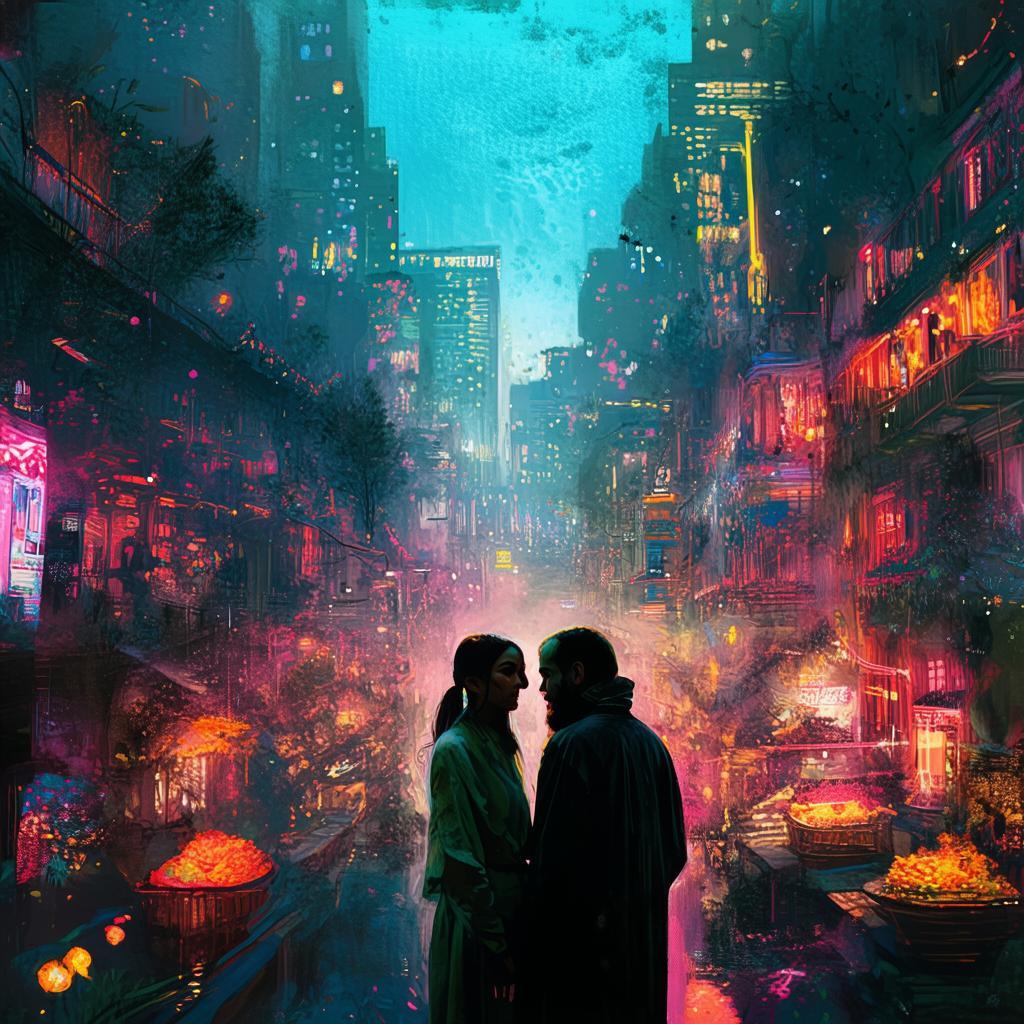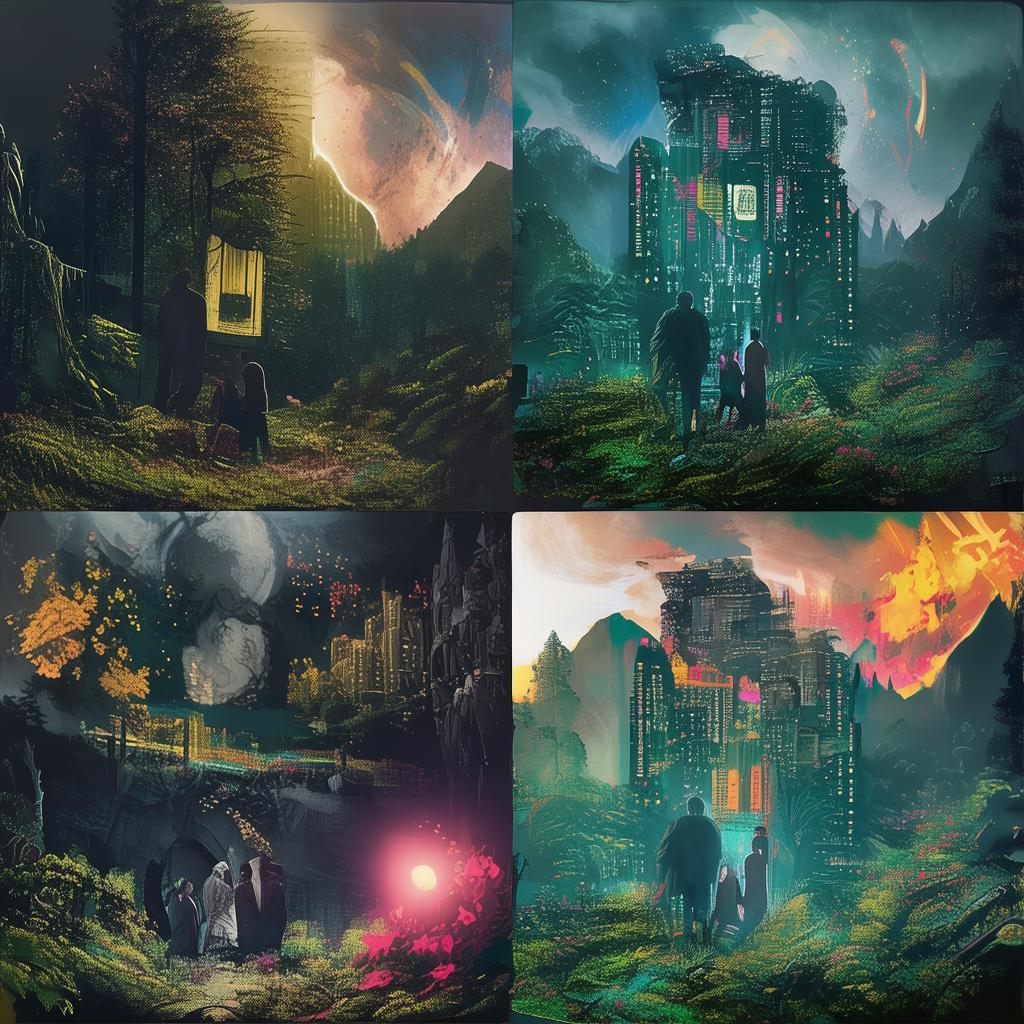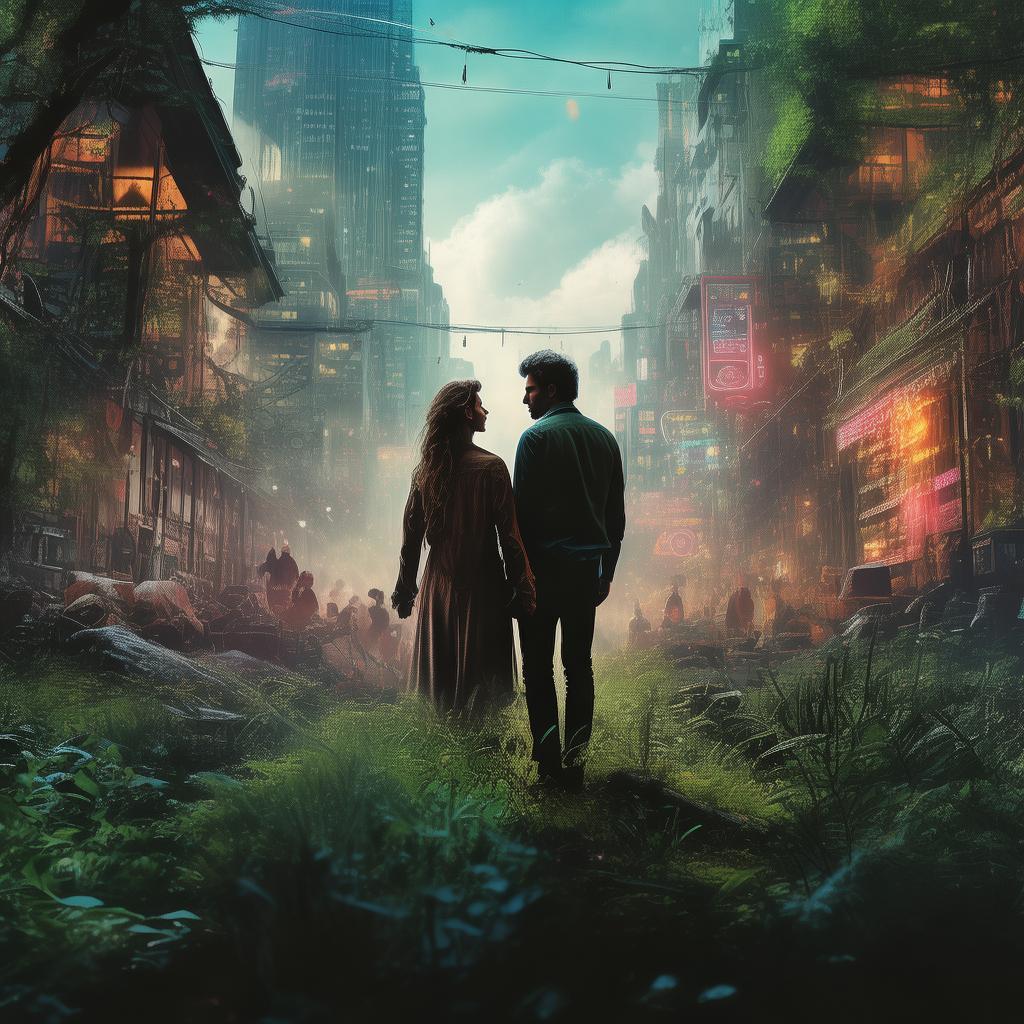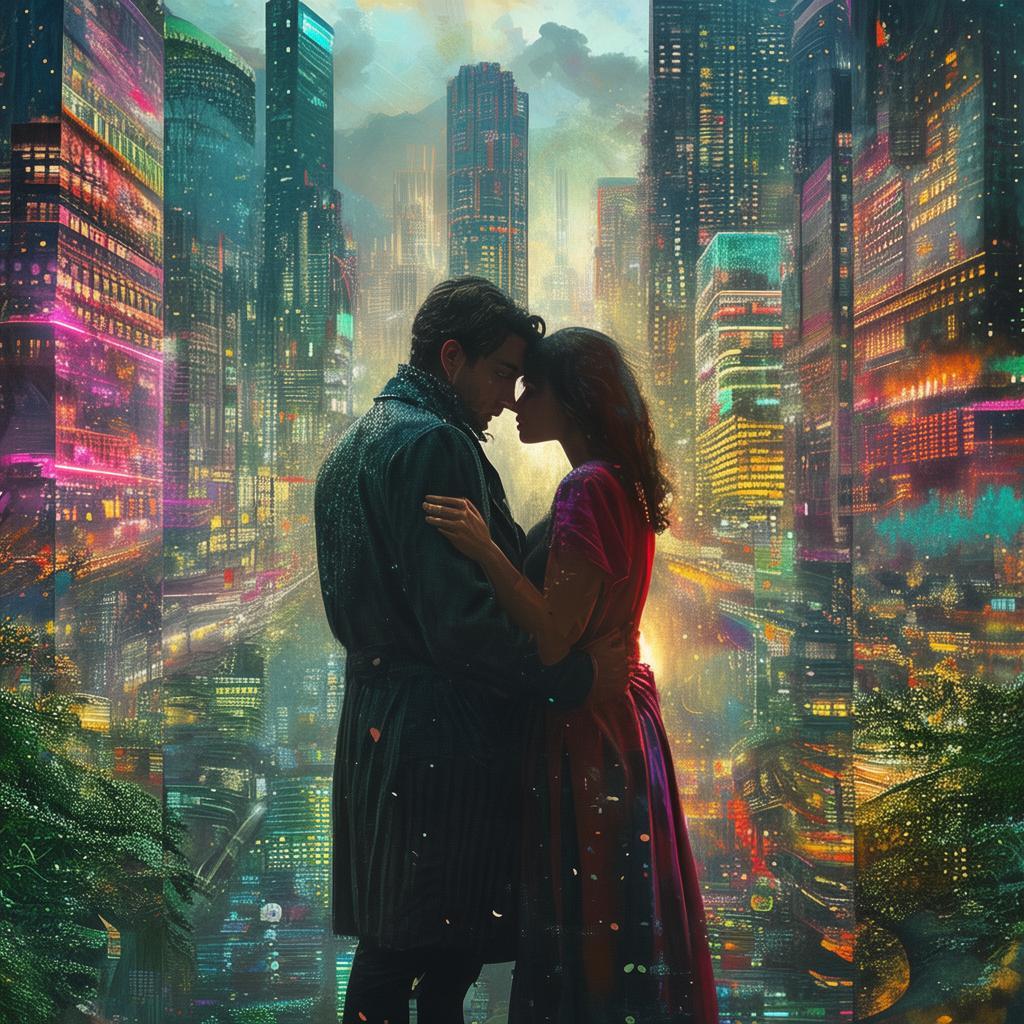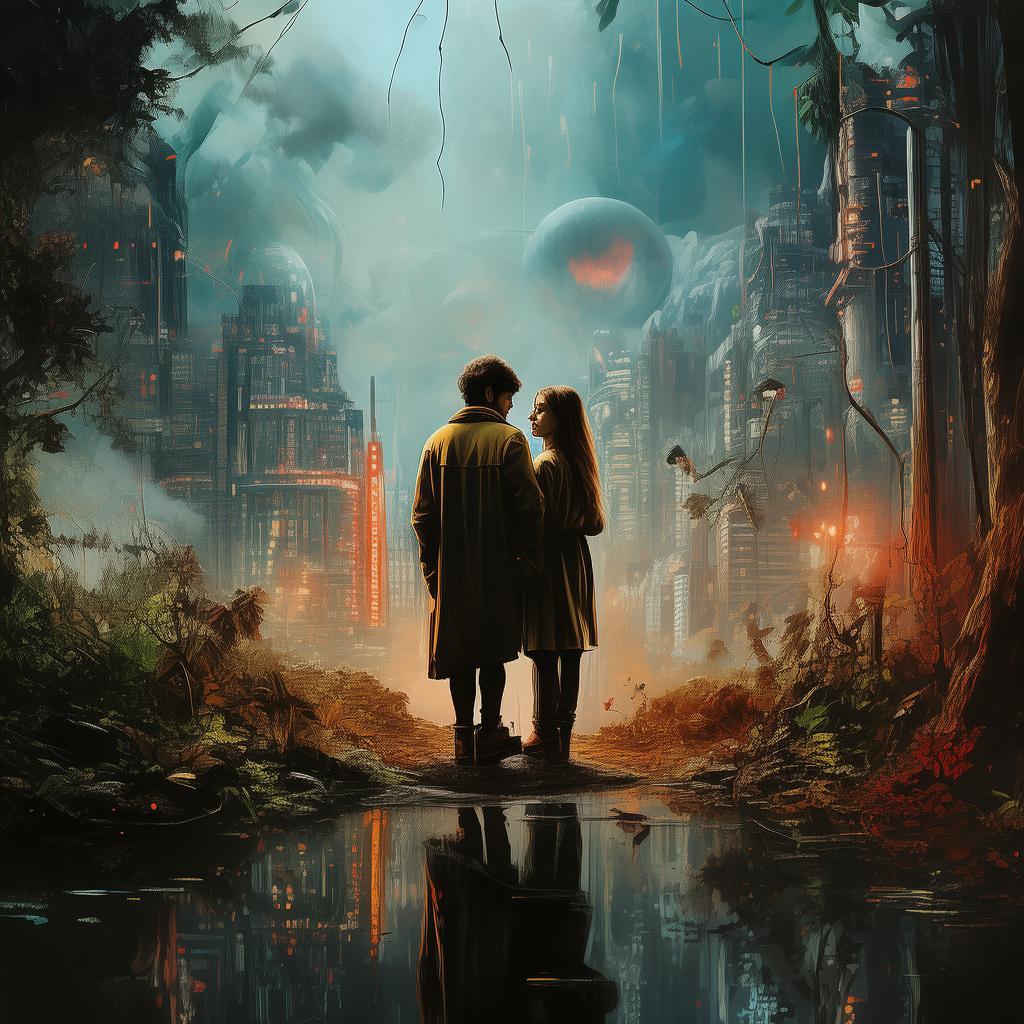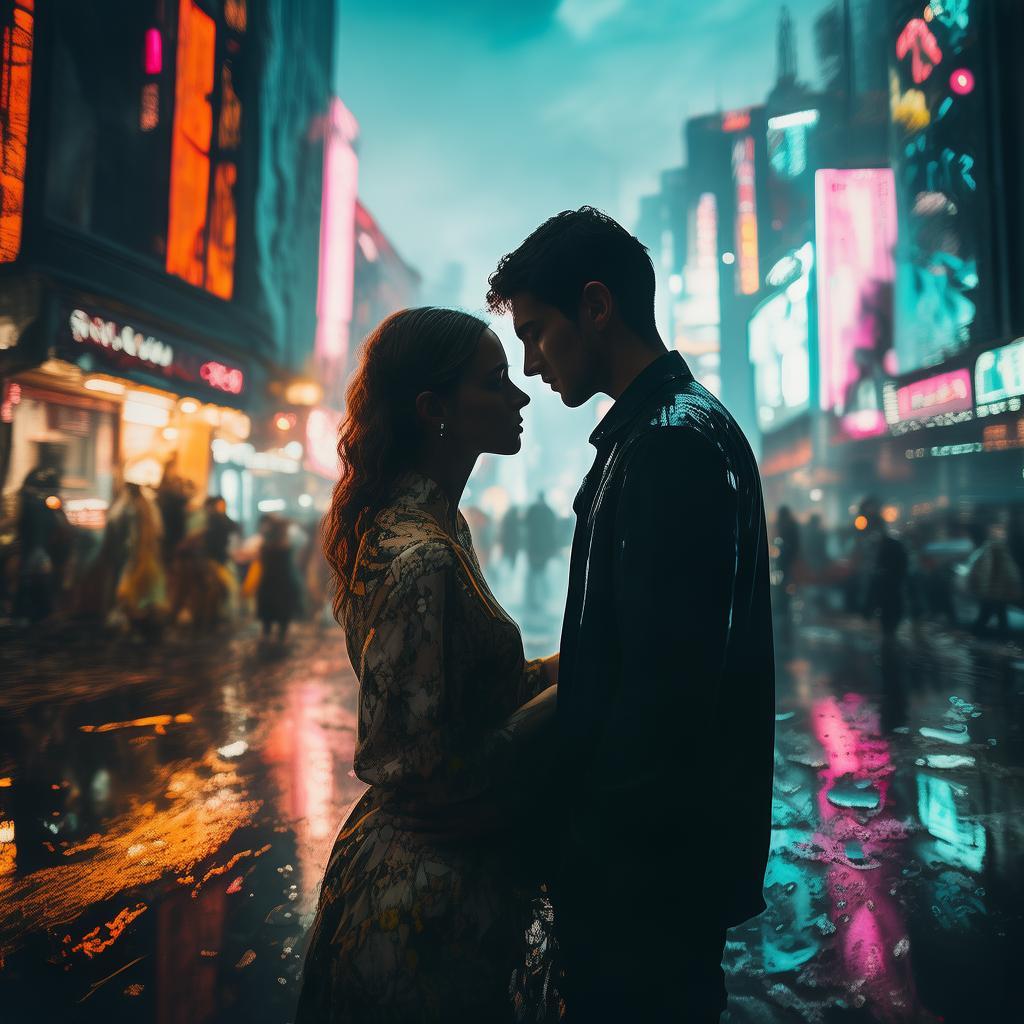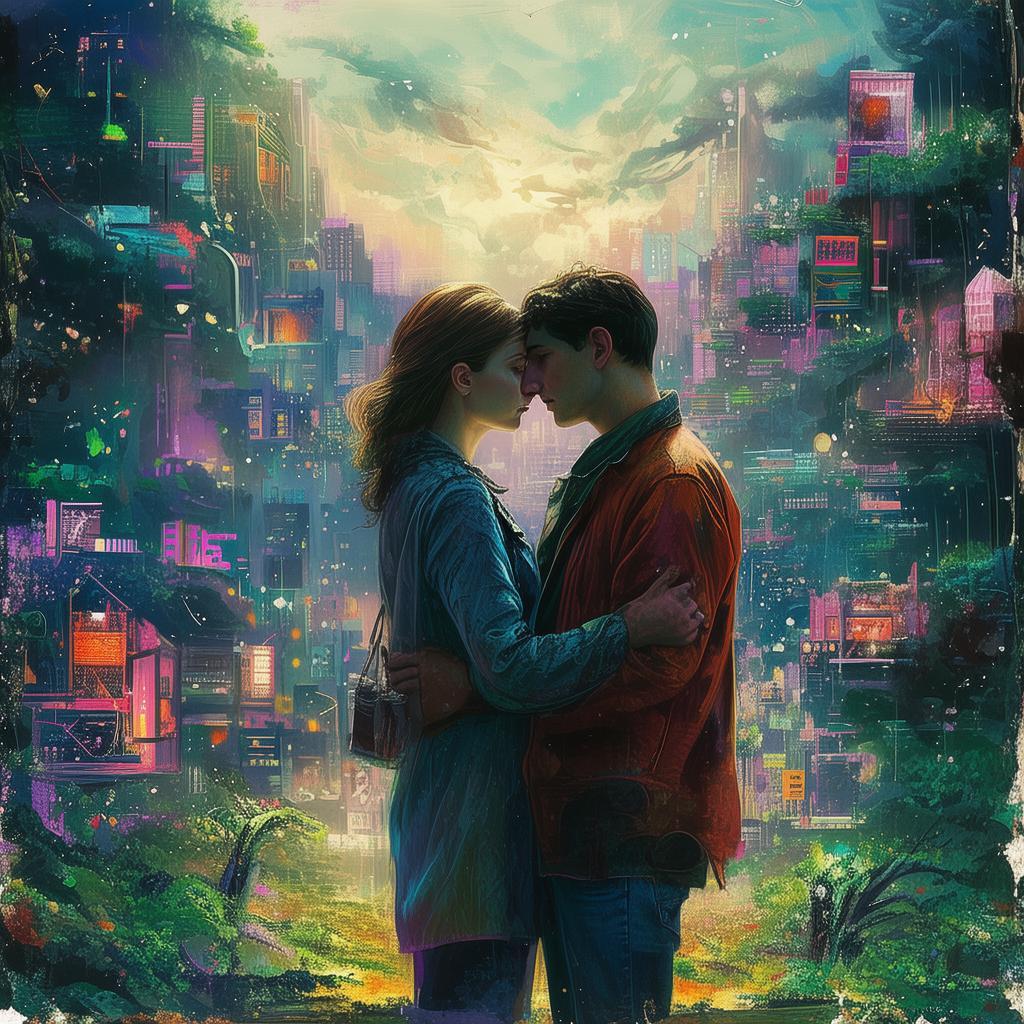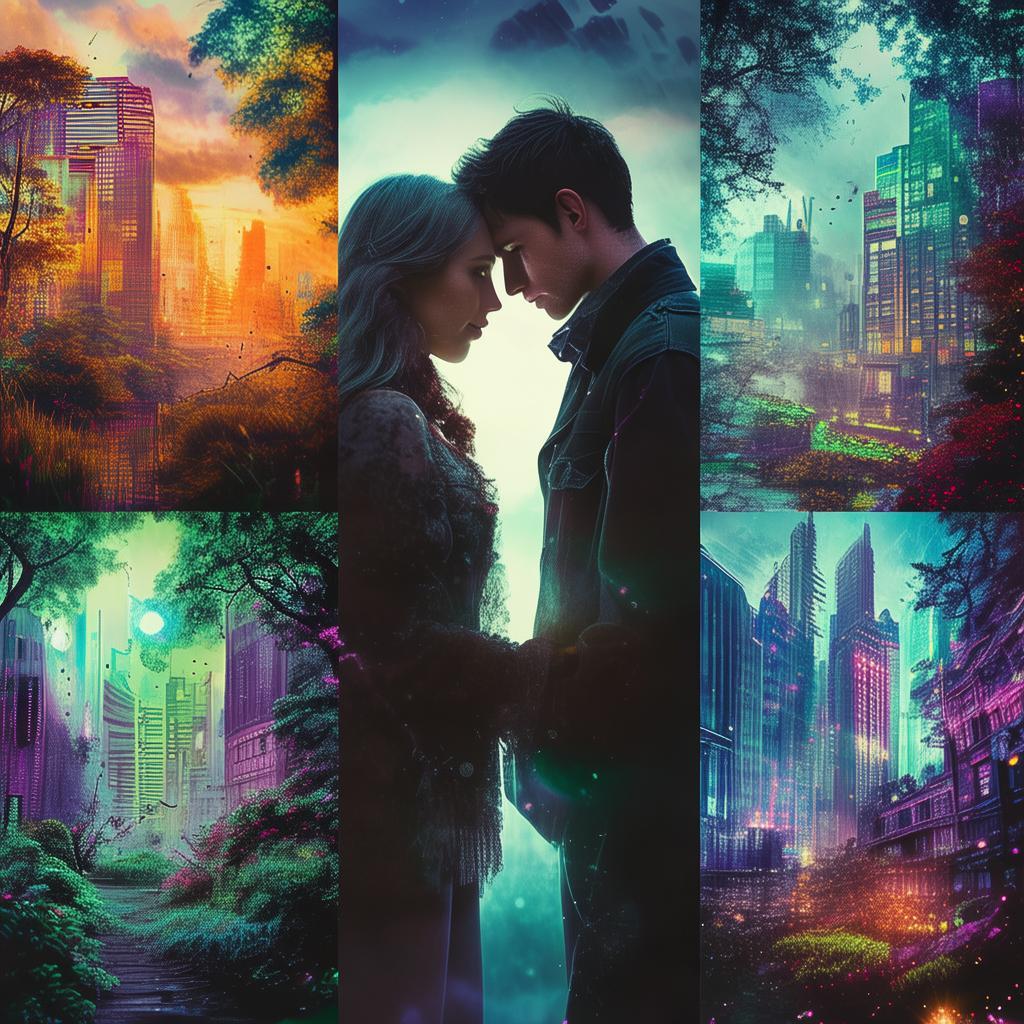Whispers of the Past: A Love Unveiled
In the heart of a bustling city, where the echoes of the past mingled with the symphony of the present, there lived a young woman named Elara. She was a musician, her fingers dancing across the piano keys with a passion that mirrored the turmoil within her soul. Elara's life was a melody of her own composition, a blend of joy and sorrow, light and shadow.
Her father, a revered composer, had passed away under mysterious circumstances years ago, leaving behind a legacy of music that no one dared to touch. Elara's mother, a once-prominent singer, had retreated into seclusion, her voice silenced by the weight of her loss. Elara had grown up in the shadow of her father's fame, her own dreams smothered by the ghost of her parent's past.
One rainy evening, as she walked through the cobblestone streets, Elara stumbled upon an old, dusty bookstore. The scent of aged paper and ink enveloped her, and she felt an inexplicable pull towards the store. Inside, she found a hidden room, its walls lined with shelves of forgotten books. Among them, a peculiar volume caught her eye—a diary, bound in leather, its pages yellowed with time.
As she opened the diary, she was transported back to a different era, where her father had once lived. The entries were filled with love, longing, and a melody that seemed to resonate with her own soul. She discovered that her father had written a song, a song that had never been performed, a song that held the key to her own past.
The melody was haunting, beautiful, and it spoke of a love that had transcended time. Elara felt a strange connection to the words and the music, as if she had been waiting for this moment her entire life. She realized that her father's love had been the missing piece in her own life's puzzle.
Determined to uncover the truth behind the song, Elara began to research her father's past. She discovered that he had been involved in a secret society, a group of artists and revolutionaries who had fought for the freedom of expression. The song was more than just a love song; it was a call to arms, a revolution of the heart.
As Elara delved deeper into her father's past, she met a man named Alex, a musician with a similar passion for freedom. Their paths crossed in the most unexpected way, and a bond was formed that was as powerful as the melody that had brought them together.
Together, they began to perform the song, a song that had been suppressed for decades. The performance was a triumph, not just of music, but of love and freedom. It was a love story that had been hidden away, a story that had the power to change the world.
But as Elara and Alex stood on the stage, bathed in the glow of the spotlight, they knew that their journey was far from over. The melody of the lyrical revolution had been set in motion, and they were just the beginning.
Elara's mother, who had watched from the shadows, finally found the courage to step into the light. She joined the performance, her voice echoing through the room, a testament to the power of love and the resilience of the human spirit.
The concert was a sensation, a love story that had captured the hearts of the audience. It sparked a movement, a revolution not just in music, but in the very essence of human connection.
In the end, Elara realized that her father's love had not only saved her but had also given her the strength to save others. The melody of the lyrical revolution had not just been a song; it had been a beacon of hope, a reminder that love and change could coexist, that the past could inform the future, and that the heart had the power to shape the world.
The diary had been a time capsule, a portal to a world long forgotten. Each entry was a fragment of her father's life, a story of love and struggle, of dreams and aspirations. Elara found herself drawn into the narrative, the words painting a vivid picture of a man who had lived for the sake of his art and the cause he believed in.
The diary spoke of a love affair, a passionate and forbidden romance that had once filled her father's heart. It was a love that had been both a source of inspiration and a burden, a love that had driven him to create. The melody, it seemed, was the heartbeat of their love, a song that had been written in the darkest of times, a song that had the power to heal and to transform.
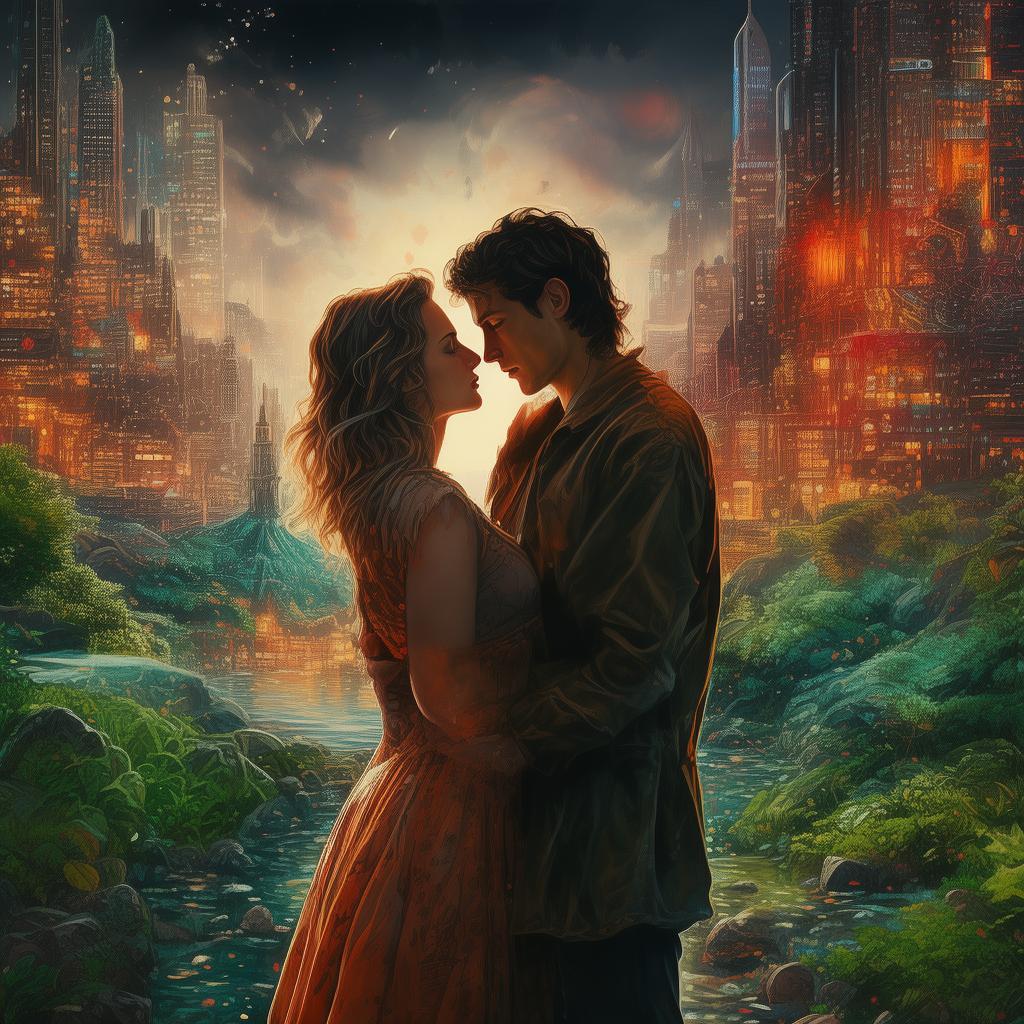
Elara's quest to uncover the truth behind the melody led her to Alex, a man whose life had been a series of struggles, much like her own. They found solace in each other, their shared passion for music and the desire for change becoming the foundation of a deep and abiding love.
The diary also revealed the existence of the secret society, a group of artists and thinkers who had banded together to fight for the freedom of expression. They had been a force to be reckoned with, their influence felt far beyond the confines of their gatherings.
As Elara and Alex delved deeper into the past, they discovered that her father had been a key figure in the society, a man whose contributions had been crucial to their cause. The diary spoke of his struggles, his triumphs, and his ultimate sacrifice for the greater good.
The revelation of her father's past was a heavy burden for Elara, but it also brought her a sense of purpose. She realized that her father's legacy was not just his music; it was his love for freedom and the courage to fight for it.
The performance of the revolutionary melody was a turning point, not only for Elara and Alex but for the entire city. It was a night when the past and the present collided, when the music of the past resonated with the dreams of the future.
The concert was a triumph, a celebration of love, music, and the enduring power of the human spirit. It was a story that had been told in whispers, but now it was sung aloud, a melody that would echo through the ages.
Elara's mother, who had watched from the shadows, finally found the strength to step into the light. She shared her own story, her own pain, and her own hope. The concert became a family affair, a celebration of love, loss, and redemption.
In the end, Elara and Alex stood together, their love a testament to the power of the past and the promise of the future. The melody of the lyrical revolution had not just been a song; it had been a call to action, a reminder that love and change were inextricably linked.
The diary, once a hidden relic, had become a beacon of hope, a legacy that would inspire generations to come. Elara had uncovered not just her father's past but her own future, a future filled with love, music, and the promise of change.
✨ Original Statement ✨
All articles published on this website (including but not limited to text, images, videos, and other content) are original or authorized for reposting and are protected by relevant laws. Without the explicit written permission of this website, no individual or organization may copy, modify, repost, or use the content for commercial purposes.
If you need to quote or cooperate, please contact this site for authorization. We reserve the right to pursue legal responsibility for any unauthorized use.
Hereby declared.

